Holocaust lesson in Germany - What do we teach our kids at school?
Hello Steemians!
Do you wanna hear the fascinating story behind the soon-to-be-released film 'The Lesson'?
Only few months after I met Elena, the doors of the BBC headquarter opened to welcome our first successful documentary and to interview me. Here you find the interview to the 23 years old version of me:
Elena and me started off with a bang, therefore I decided to stick around her! 'She is an amazing, visionary filmmaker' I thought '...and she brings good luck!'
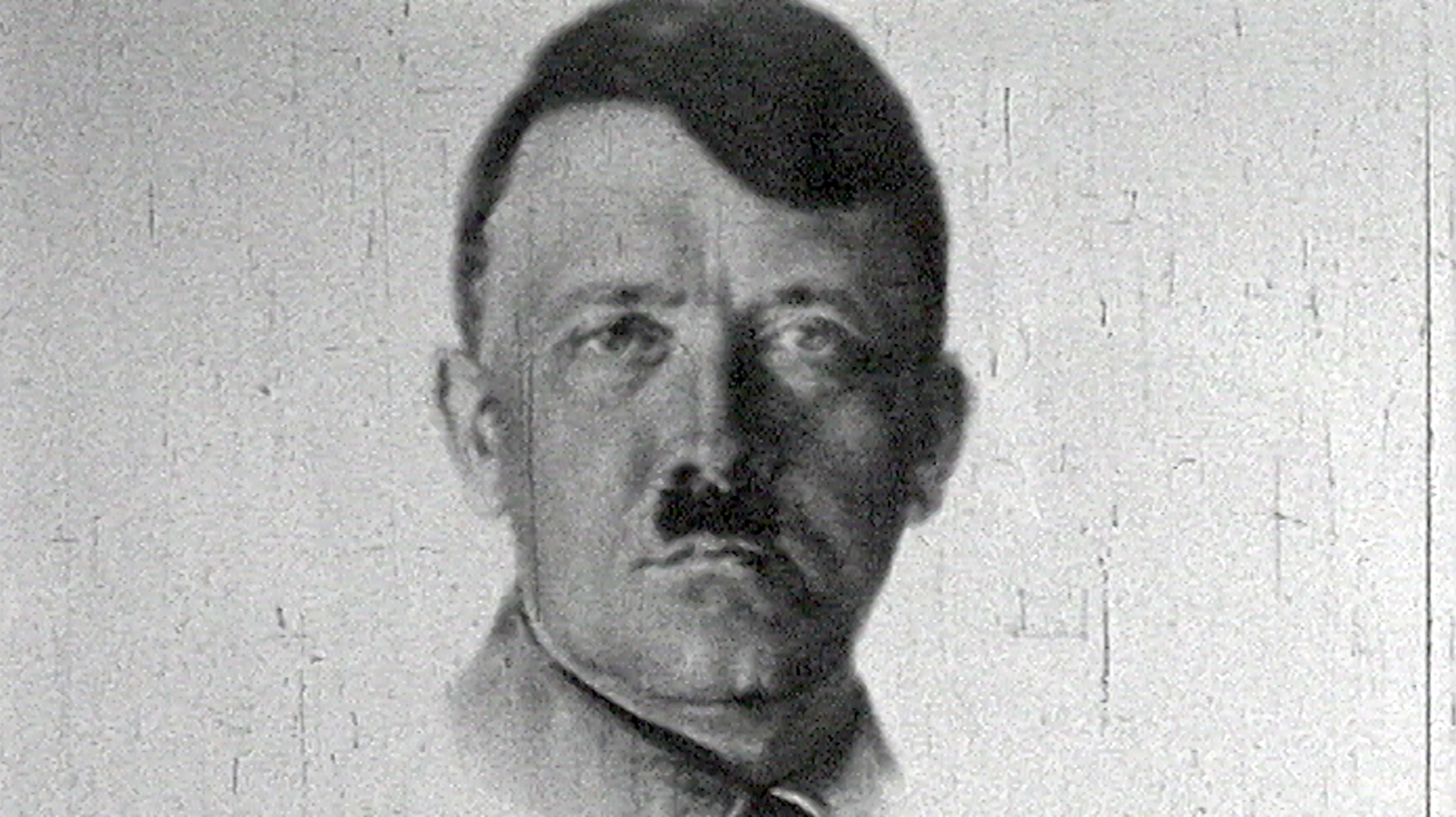
When we met in London during the MA in Documentary 4 years ago, she was pretending to be British because she was ashamed of his German nationality. I couldn't disguise her, because she had picked the British accent very well. After a few days, I was impressed by the way she shamefully moan ‘Actually, I am not British...I am German’.
I lately found out that the reason why she lied to me is that she was feeling guilty for the Holocaust. I encouraged her to find out when and how this sense of guilt (in German Schuldbewusstsein) manifested itself. So we went back to her school - in a small village close to Dortmund - and started to film the kids during history class.
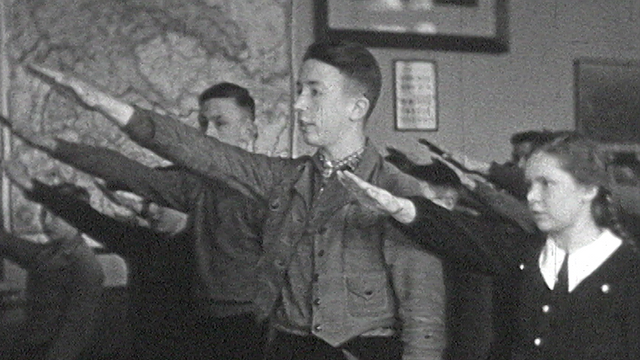
Elena and me are now creating the film around the harshest topic of the German educational system and we are aware that we need support from you Steemians to develop the film to its full potential. Ah, a little call to action:
When we went filming in the school, the teacher Herr Korinth explained to the kids for the first time how a gas chamber functions, and then asked them to reenact one of Hitler’s speeches. The teachers often pursuit a high-shock strategy and discuss with each other which concentration camp would be the most disturbing for the students to visit. This rigid, strict and in parts traumatising lessons can result in the opposite of what is intended.
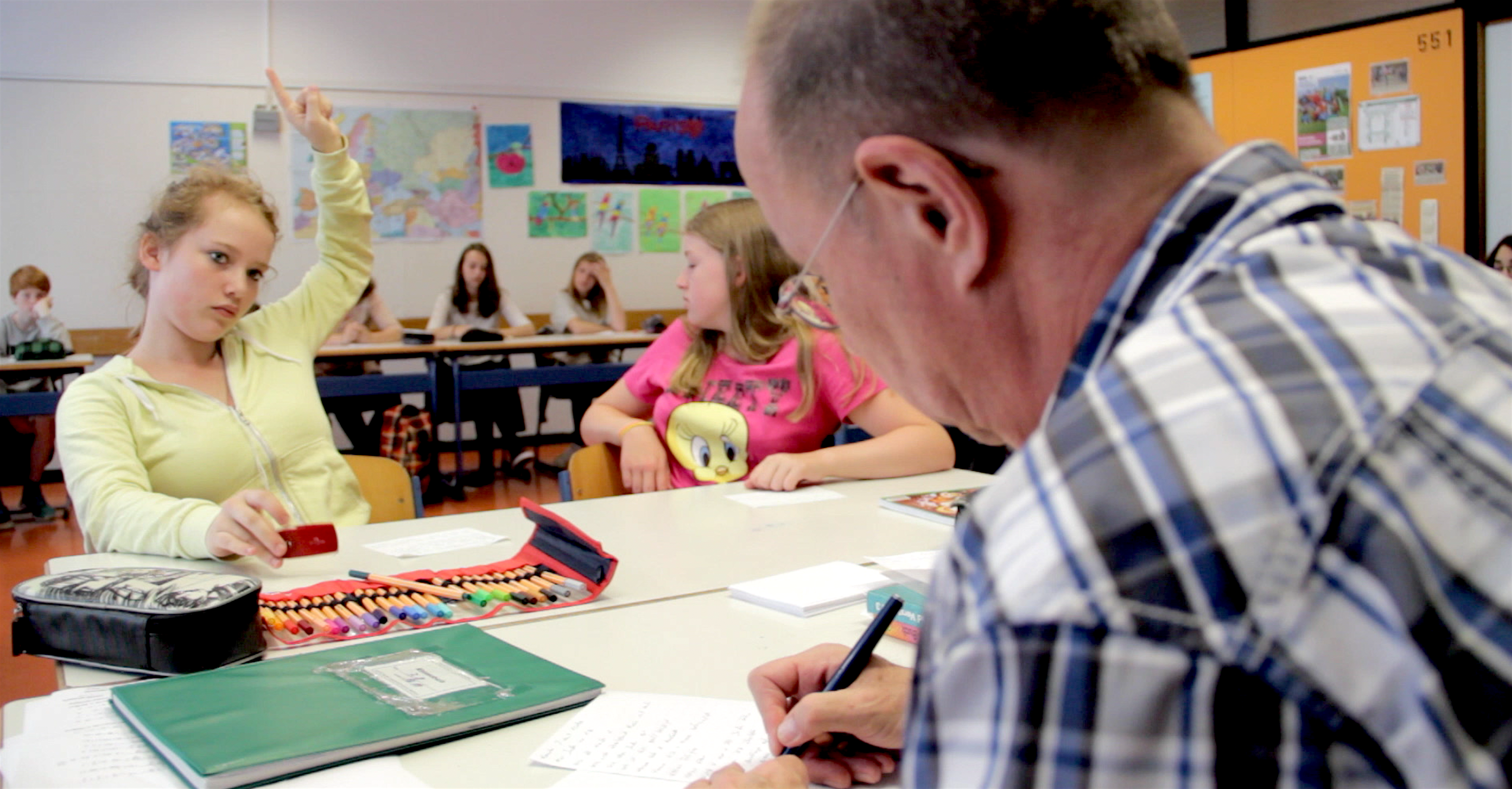
Exposing the flaws in the educational process is just as important as showing up the limits of where school education can reach. In fact, after school, other lessons are taking place, overall in soccer stadiums. If you happen to be a young girl like Nele (one of our contributor), if your grandpa is hiding a swastica medal in the kitchen drawer, and if the ultras of your football team are chanting nazi slogans, there is another lesson waiting for you. Nele is conflicted between what she learns at school and what her grandfather and football coaches are instilling in her mind in the confusion of puberty.
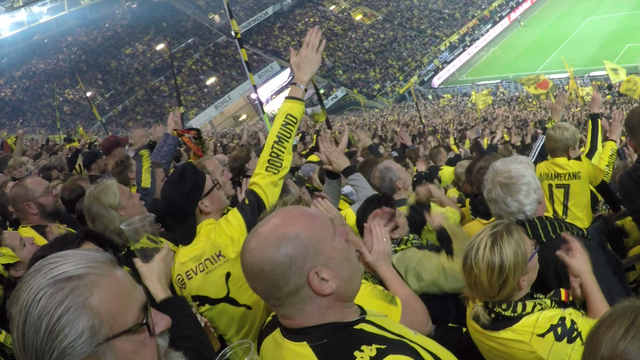
This film must be completed as soon as possible. For two reasons mainly.
First and foremost, the last contemporary witnesses of World War 2 are disappearing at a tearing pace and within few years memories will have to be passed down exclusively by the teachers. The lesson is not going to come from the parents. The film shows how families until today drop into silence when it comes to discussing the Holocaust. Soon, the War generation will have vanished from German society - equally on sides of the victims, perpetrators or normal soldiers. In the film, the children challenge their own grandparents about their role in the war. If they don’t find the courage to ask them now, they will lose this chance forever.
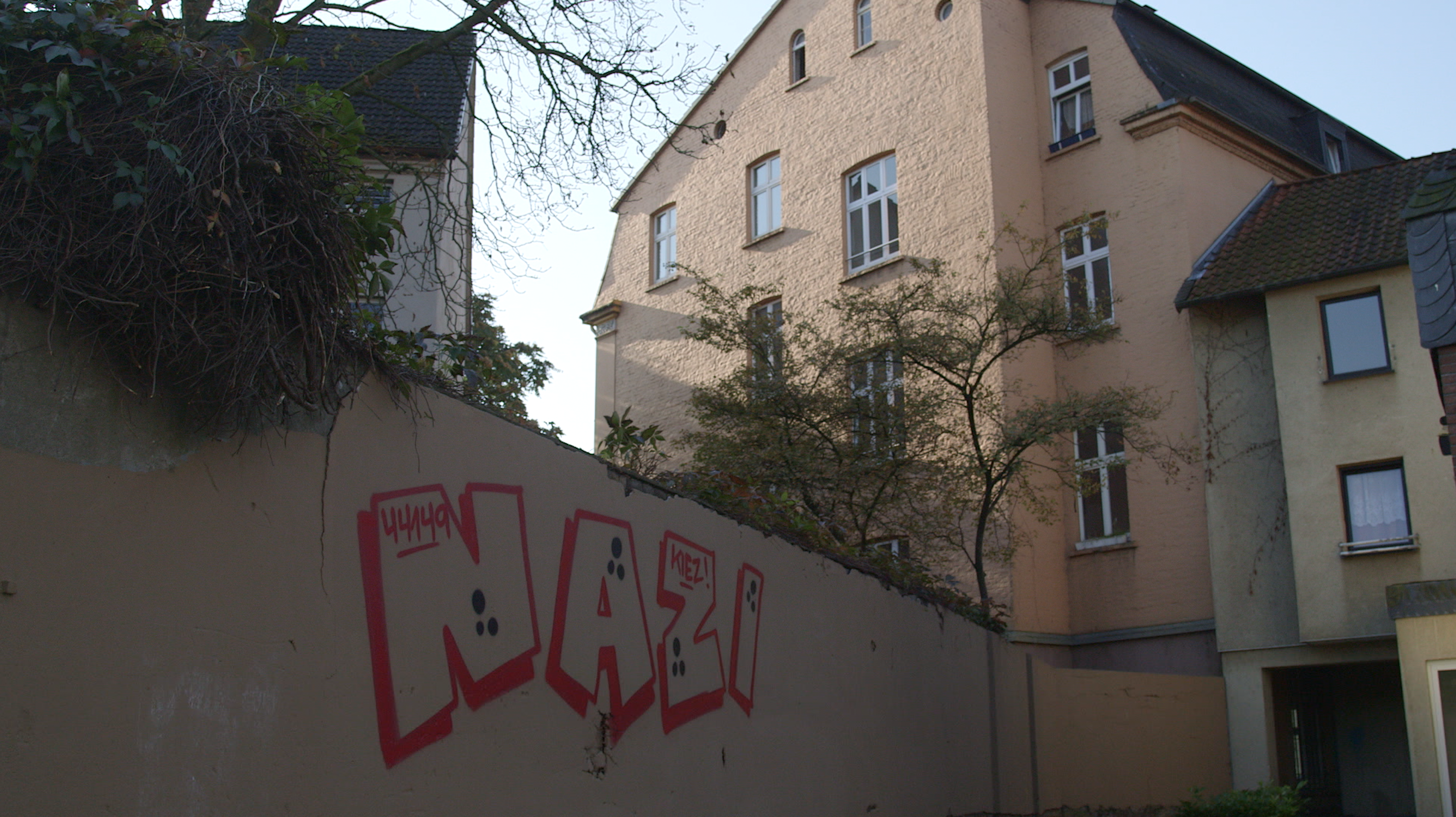
Secondly, in times of social turmoil and revitalisation of Anti-Jewish and Anti-Muslim movements, we discover that children get in touch with Neo-Nazi imagery and propaganda at a very young and vulnerable age. Ultranationalism, xenophobia and race-supremacism are still deeply ingrained into soccer fan culture or the shooting clubs in the village where this film takes place. These are the places where this toxic ideology keeps on breeding.
When Donald Trump’s grandfather left Germany, it was the time of segregation and religious prosecution in German society. It seems to me that the dominant ideology of the time is still prevalent in the ideas of the family today.
In addition, we have found unpublished archive material from 1933 in the Landesarchiv Muenster.
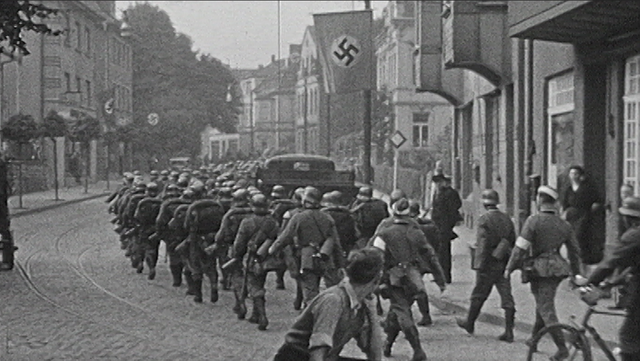
The footage shows the everyday life of school children in a similar age that experience the early militarisation in the class room - and shockingly we discovered various similarities to methods of pressure and fear being used today.
The film has a unique angle on German educational system and the memory of the Holocaust.
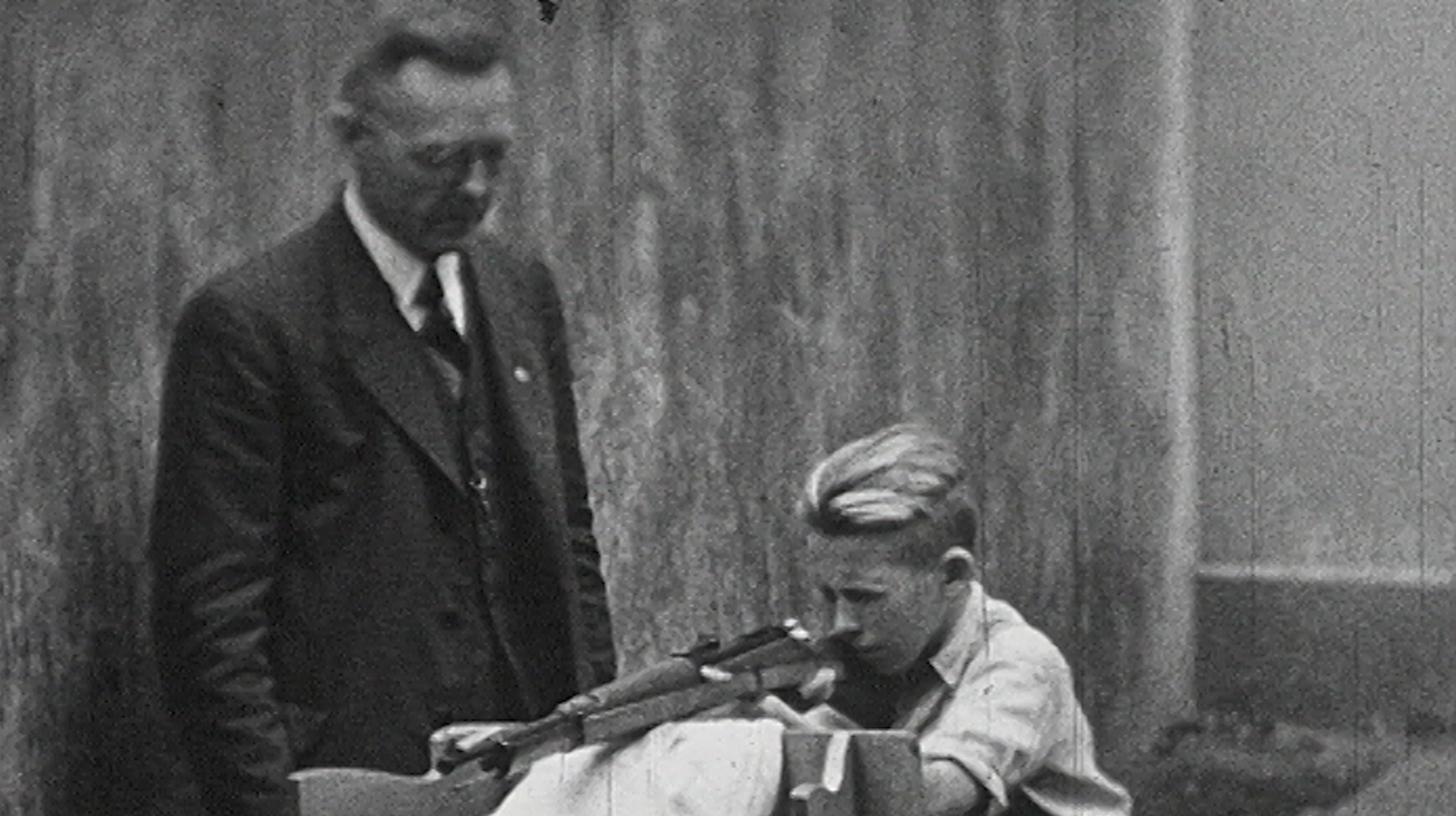
With this film, in general, we want to address the whole educational sector and raise awareness on the risk that some delicate historical periods are charged with an over accusatory tone and can radicalise opinions in a way that history should have warned us enough to avoid. In particular, we want to show how the roots of the recurring racist behaviour amongst young Germans are to be found in the space between the rigid school classes and the aggressive hooligan culture.
More screenshots from the film...
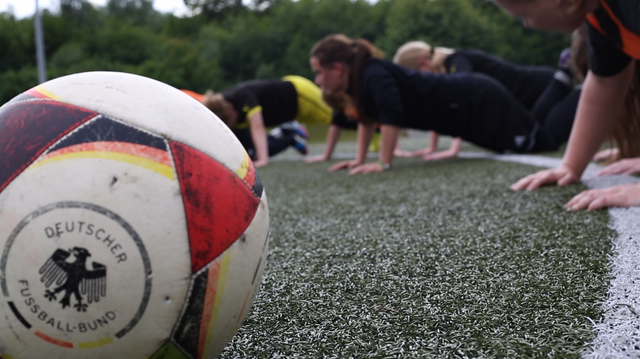
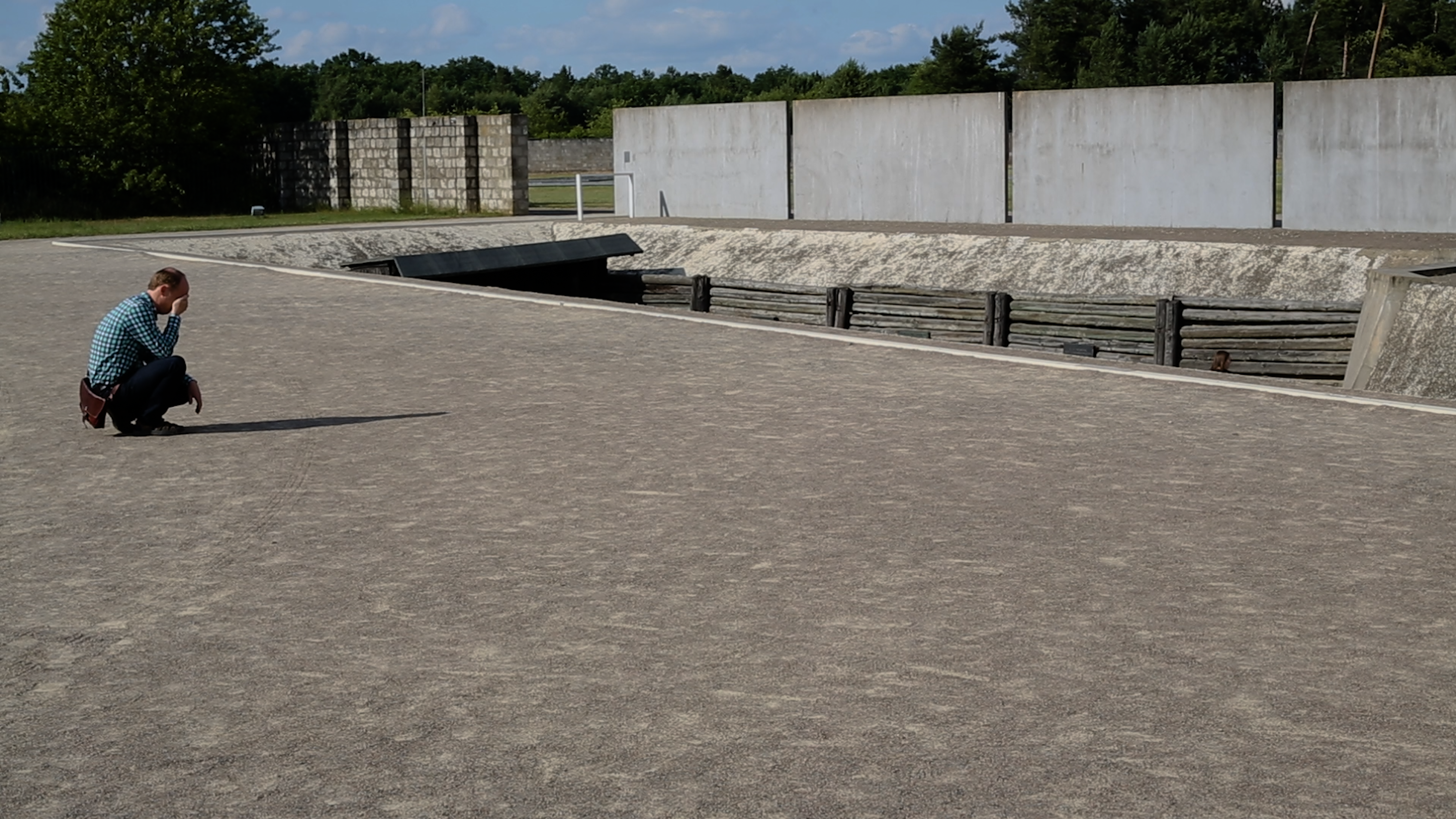
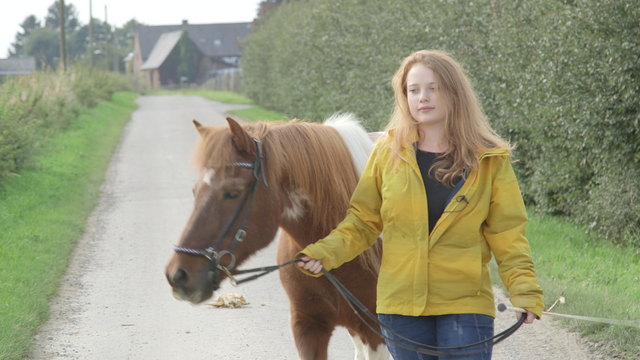
Steem on!
Please teach the Kids just one thing : there is no such thing aw the good state. Democracy will Not protect us from a 2nd holocaust
If you have a true Democracy it will protect everyone. Unfortunately there is not such a thing in Europe...
They pretend Democracy by letting people "Democratically" choose the people who are already chosen by banksters - nazis to do there work.
They use "Democracy" as a tool to keep the masses from not revolt since they have the right to choose who they think is the best for them, but in reality they just change who will take charge on a predefined plan.
People start realize that all this finally works against them and just before they revolt, again a new leader appears and the cycle continues.
The system starts blaming democracy about the problems of people and takes that as an excuse to impose more undemocratic and inhuman measures.
People must learn how really democracy works and stop voting as a hobby but as a true meaning for there future.
But... they need a true education and access to information.
Sure @amadeus true democracy comes from participation. Voting is a strong tool of democracy, but not remotely close enough to prevent a dictatorship. Participation to the political debate (not only online) and joining grass-root movements that allow every citizen's voice to be heard in a forum/square/meet up etc. That is what keep us alive and in charge of our own future. Direct democracy is possible and can and must run parallel to representative democracy.
There are enough nazi movies, and the "Zeitzeugen" are taped very well on this Channel:
Gedächtnis der Nation
https://www.youtube.com/user/GDN1940bis1949/videos
I think there should rather be a movie about the Bellamy salute
and the US Japanese Internement Camps during WW2
Yeah, for "true" democracy se just need the "right " politicians"and "right" people.
Hi @felix.herrmann , thank you for your comment.
That is very true. That's why I want to take a closer look at what is happening in our educational system. The teachers are seriously struggling to get the topic across and the parents are not feeling responsible for informing their children. Not about the general historic events and also not about their own family's history. It is a very complex topic. I started filming 4 years ago. The political situation was immensely different at that time. And the kid's sensitivities and curiosities shifted together with the political climate.
Which experience did you make, Felix?
Best
Elena
Do you think it is a good idea to teach kids about a System of force and violence (concentration camp) when they are in School BECAUSE they are FORCED to go?
Well @felix.herrmann, although we don't overtly try to draw a parallel between the school and the camp, we are making some cheeky transition between one and the other in the edit. One teacher in the film is himself getting this point across. He says that teachers are making a ranking of the 'most shocking concentration camps' to establish where to take the kids and 'maximise the emotional impact' on them. He says this is a 'nazi' way of thinking.
Struggling to get the topic across?
They teach that shit in every fucking class. Merkel throwing our German flag away and being proud to be German = Nazi.
Germany is completely brainwashed.
Hey @valorforfreedom yes I don't think it's healthy for Germans to feel ashamed and guilty all the way - for example during the World Cup 2014 I remember that waving the German flags became such a big deal! Last time Germans felt that way - after the Versailles treaties - it did not end up well.
the smallest minority in society is the individual.
Unfortunately history proves that the nazi role never ended in Germany and in Europe. The plan was the reoccupation of Europe under the mask of EU.
Again @amadeus as I wrote above, I don't think that calling the Germans and Merkel and EU 'nazi' helps understand the situation. That is a toxic narrative. A Nazi ideology implies the belief in the superiority of the German race over all the others. There are huge economic interests in the EU, but at no point the race issue plays a role in the way the EU is organised.
@elenahornfilm Don't take my comment as a "flame" war. Its not my intention to blame anyone. Sometimes written speech isn't like a face to face dialogue.
Just take a look in to what we call EU today as you were someone who lives outside Germany.
I don't blame people , i blame certain think tanks of EU.
I got you @amadeus don't worry I know what you are saying and I like when the debate about it gets animated anyways. Just bear in mind that according to the so-called 'Godwin's law' "as an online discussion grows longer, the probability of a comparison involving Nazis or Hitler approaches one".
A very important topic. I have always felt that the extreme guilt that Germans were/are supposed to take on even when born way after the war, together with the silence in the families about what happened for them, on a personal level, has let to the rise of the neo-nazi presence and the hatred for foreigners.
We don't seem to learn from history very much...
This is the point we are trying to make @mariannewest
We noticed how the kids get fed up with the topic very soon. Also, nothing that is considered 'graphic content' is shown to the kids. They can turn 18 without having seen any of the horrors from the camps. The lesson is too often very heavy on them, and too conceptual. It reaches the brain (maybe), but it doesn't reach the hearth and the soul.
As long as the images don't come with: And you carry the guilt for this. Germany is still so much in the mea culpa teachings. The Germany I grew up in was just Germans - then slowly "guest workers" from Italy, Bulgaria, Turkey.
And prejudice - from what I can tell from afar - is high as ever. I love to see more "how can we create peace among diversity" kind of work.
Not saying that it is not important to know your history - but the most important part is to create a different future...
Hey @mariannewest, History class is indeed important. This film is about 'how' the darkest historical period and possibly the worse genocide in history is thought to the nieces and nephews of the perpetrators. And overall, would you show to a 14 years old kid? Or 16 years old kid? Would you show the film 'Night will fall'? Or is that too much?
Absolutely fucking agree.
Followed and upvoted. What you are doing is very important. The role of education and memory is essential in preserving the lessons we tragically learnt from history..Are you somehow going to document what's happening in the neo-nazi village of Jamel in Germany by any chance?
Hello @f3nix we filmed in North Rhine-Westphalia, in Dortmund and surroundings. Most of the film takes place in the countryside! But we went to the stadium in Dortmund with one of the kid, because that's where another lesson is taking place, that kind of undermine what the students are thought art school: the neo-nazi supporters of BVB, the nazi district of Nordstadt etc.
Very impressive. Keep up the work. This is such a sensitive subject and especially in the UK there's a huge anti-semitism/anti-zionism movement happening at the moment and it comes top-down. I am not acusing or defending anybody, but if we start teaching tolerance and listening to one another, we can avoid many problems in the world today. It all starts with tolerance, respect and listening to someone else's point of view. Even if you don't agree, if you ignore it, he/she might/will feel like no-one is listening to them and go on the path towards extremism.
Yes @wolfje we need to talk to the neo-nazi, trying to understand them. Some of them are afraid to lose their jobs to the migrants (it is a legitimate issue to be addressed), some other simply want to blindly go back to a time where different ethnicities were not so mixed up with one another (impossible). It is a battle of the have-nots against those who have power/money/resources. The middle-class is now impoverished as much as the the working class. We need to stand together against the finance-aristocracy. But please, let's not call the bankers 'nazi'. Let's use words for what they mean..
Many people are also using the situation in Israel to be anti-semitic/anti-zionistic. These are not right wing people, the majority of them are leftist. They believe that they're on the side of the victims and many are not open for a dialogue. It's a very sensitive subject and both parties need to listen to one another as they're both right ... and they're both wrong. Only together you can achieve tolerance and respect.
The guilt felt by Germans will never end until they are taught to properly investigate the events that took place between 1939 and 1945 and particularly what led to these events. To even discuss this subject unless you agree with the central tenets of 'The Holocaust' is taboo and that is the problem. The Germans were humiliated after WW1 and the same happened after WW2. Only the very bravest Germans speak out and they pay the price such as Ursula Haverbeck
Well @jimbobbill I think that Ursula Haverbeck is a negationist, which is pure madness, but I agree with you, on a general basis, that we should be able now to put things more into prospective and study more the dynamics that lead to the Holocaust, instead of focusing merely on the Holocaust itself.
Why do you think it is pure madness for Ursula to question the holocaust narrative? It's only seen as madness thanks to a 70 year propaganda campaign that has led to the situation where people like Ursula can be imprisoned for her views. Once you start looking into the dynamics that led to the events it naturally leads to questions about the events themselves. The dismissal of those asking questions as 'deniers' or 'anti-semites' or labelling their views as pure madness is the problem in my opinion and until more people actually start looking into the events for themselves rather than dismissing anything and everything that disagrees in any way with the accepted narrative we are doomed.
In my opinion it is very important that we start to ask our own questions as you do with the film. And stop believing what politicians are telling us. I don't say that Politicians always lies but it is just one side of the truth, beneath a lot of others. Very good project.
Hi @doityourway , thank you very much for your feedback.
I'm so happy to see that you think this is a worthwhile project. I discovered so many really unexpected things in the Germany classrooms. I will keep you posted on how the edit proceeds. It feels more urgent than ever to complete it.
x
upvoted a great post, I hope you will visit my page and read my novel prologue @swilson1156 and give me your insite
@royrodgers has voted on behalf of @minnowpond.
If you would like to recieve upvotes from minnowponds team on all your posts, simply FOLLOW @minnowpond.
With the laws as they are today, this film will never be allowed to be shown - not if it attempts to honestly address the topic. The 'holocaust' has taken on a religious aspect as bad as any religious extremism. If Sylvia Stolz could be jailed for doing her job in defending her client, and then again for defending her own defense of a client, I cannot see how a film that raises honest questions on any aspect of this new religion will ever see the light of day.
Dear @ajdohmen, Sylvia Stolz was a Holocaust denier and that is it. Our film is not denying the Holocaust. It wants to shed light on the way German kids learn about it, and on the new rise of the alt-right. The point is, does the German society have the anti-corps to fight back the Neo-Nazi?